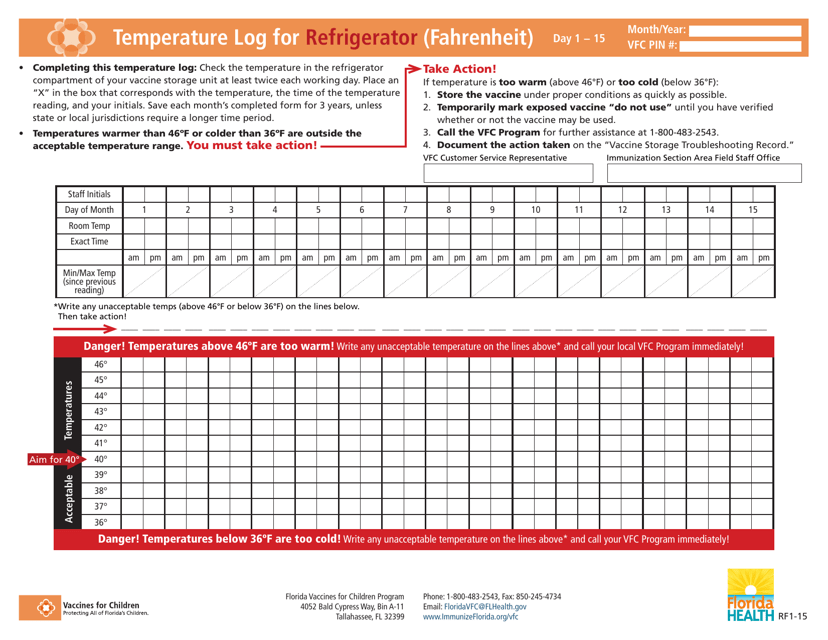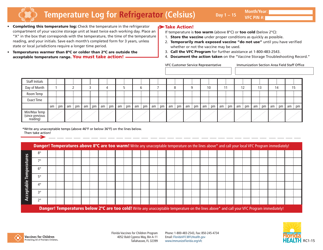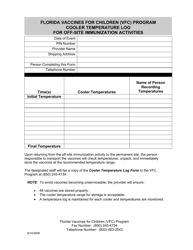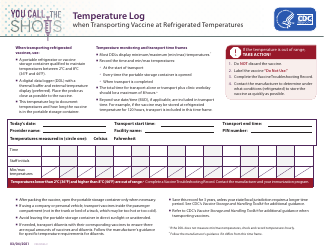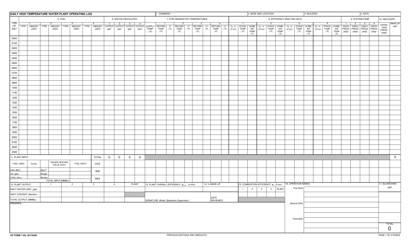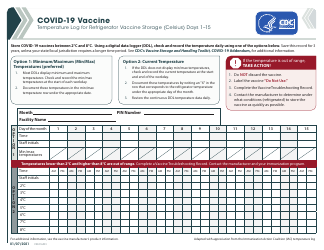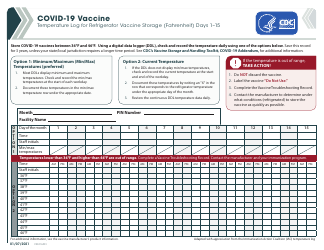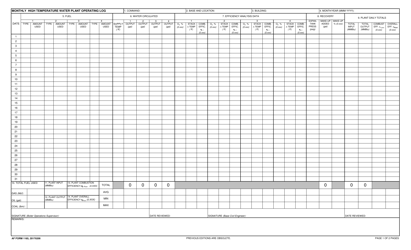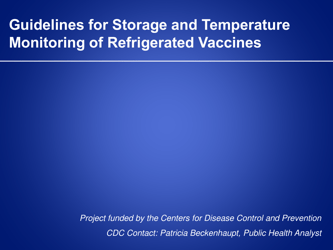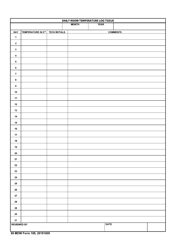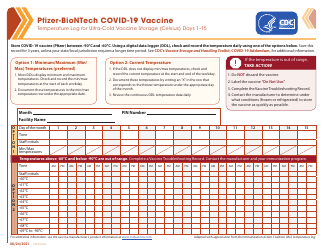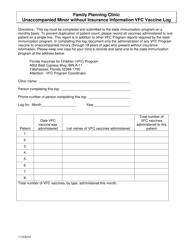Temperature Log for Vaccines (Fahrenheit) - Florida
Temperature Log for Vaccines (Fahrenheit) is a legal document that was released by the Florida Department of Health - a government authority operating within Florida.
FAQ
Q: What is the recommended temperature for storing vaccines in Fahrenheit?
A: The recommended temperature for storing vaccines is between 35°F and 46°F.
Q: Why is it important to properly store vaccines at the right temperature?
A: Properly storing vaccines at the right temperature helps maintain their efficacy and ensures they remain safe for use.
Q: What temperature is considered too cold for storing vaccines?
A: Temperatures below 35°F are considered too cold for storing vaccines as it may affect their effectiveness.
Q: What temperature is considered too warm for storing vaccines?
A: Temperatures above 46°F are considered too warm for storing vaccines as it may reduce their potency.
Q: What should I do if the temperature of the vaccine storage unit falls outside the recommended range?
A: If the temperature falls outside the recommended range, you should consult with the appropriate authorities or vaccine manufacturer for guidance.
Q: How often should the temperature of the vaccine storage unit be monitored?
A: The temperature of the vaccine storage unit should be monitored at least twice a day, and a log should be maintained to track any fluctuations.
Q: Are there any specific temperature requirements for transporting vaccines?
A: Yes, vaccines should be transported in insulated containers with ice packs or cold packs to maintain the recommended temperature range during transit.
Q: Can vaccines be stored in a household refrigerator?
A: Some vaccines can be stored in a household refrigerator, but it is important to check with the vaccine manufacturer for specific storage instructions.
Q: What are the consequences of improper vaccine storage?
A: Improper vaccine storage can lead to reduced effectiveness of the vaccines, rendering them less protective against diseases.
Q: Who is responsible for monitoring and maintaining the temperature of vaccine storage units?
A: The healthcare facility or provider is responsible for monitoring and maintaining the temperature of vaccine storage units.
Form Details:
- The latest edition currently provided by the Florida Department of Health;
- Ready to use and print;
- Easy to customize;
- Compatible with most PDF-viewing applications;
- Fill out the form in our online filing application.
Download a printable version of the form by clicking the link below or browse more documents and templates provided by the Florida Department of Health.
